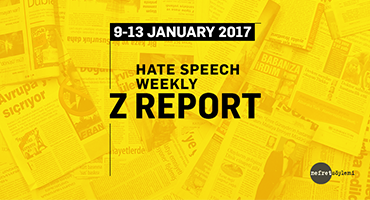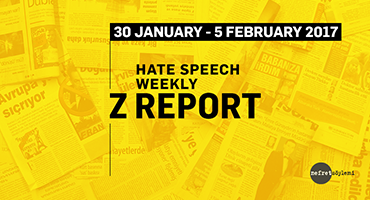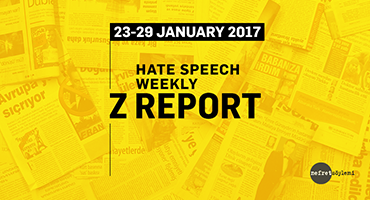Within September 1-14, 2020, three articles that generate hate speech were selected from print media. You can find three articles that contain hate speech against Armenians, Kurdish, Greeks, non-Muslims and others as well as the analyses written about them below.
1.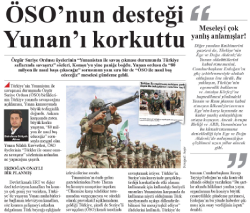
In his column title “Greeks are afraid of FSA”, Batuhan Gülşah creates a polarization through his discourse, derision of Greek identity, and glorification of Turkish identity through an interstate diplomatic tension. He writes: “On the other hand, the newspaper Kathimerini claimed that Turkey’s objections against Greeks’ fait accompli in the Aegean and Eastern Mediterranean is related to President Erdoğan’s hubris syndrome. This attitude shows that the other side of the Aegean is deeply mistaken about the attitude of our country, which doesn’t accept Greeks’ plan concerning Turkey’s sovereignty and confinement in Antalya Gulf” and “Failing to understand Turkey, Greeks seem to be feeling more anxious.” With these statements, he foments negative sentiments about and enmity against Greeks. |
2.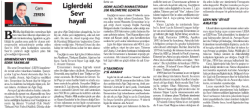
In his column titled “Sevres dream in leagues”, Cem Zeren claims that the names of Armenian soccer clubs are not about Armenia, but referring to regions in Turkey. In analyzing these names, Zeren implies that Armenia uses these names for political purposes and keeps referring to conditions of the Treaty of Sevres; he portrays Armenian identity as an enemy and uses a discourse that turns sports into a war over lands. Also surveying names in Greece, Zeren states that the Turkey references there are historically understandable and that he finds it reasonable for people disliking clubs involving Turkish players and wanting them to fail. Considering Amedspor and Dersimspor in Turkey as a threat against Turkish identity, Zeren criticizes the UEFA directors for failing to intervene and openly targets minority identities. Blaming Armenian, Greek, and Kurdish identities on different levels, the author foments the negative sentiments about minority identities and reinforces polarization by highlighting Turkish identity and carrying those sentiments into the field of sports. |
3.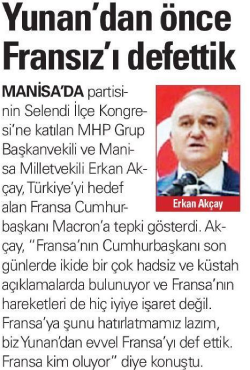
This article published in Akşam reports MP Erkan Akçay’s statement targeting French President Emmanuel Macron. Emphasizing his remark “We need to remind France that we sent France packing before Greeks” by using it in the title, the newspaper portrays Greek identity as an enemy in a decontextualized manner and foments the negative sentiment. |
4.
In his column published in Doğru Haber, Özkan Yaman criticizes the secular republic and deems Islam as the unifying element. He writes: “How could they leave those oil cities in the hands of the British? How could they flee from Syria after laying mines all over the place, how could they get away with putting Yemen, Iraq, and Africa in danger? How could they serve those islands under our nose to Greeks in a silver plate after they chased them to the sea? How could they disrespect their own civilization and adopt the laws of infidels even in critical matters like wedding and divorce without thinking about the peace of next generations?” and “What a weird paradox, seeing that they are trying to save contemporary Turkey which they put in jail under the pressure of sycophants, clowns, circus monkeys and applauding the heroes, knights who saved the day. The French, Germans, Russians, Yankees, Yorgos will say: “Which one is your true picture? Is this the one that you took with certain people whom you praise so much and with the secular republic that left the islands to us? Or the picture of your anger growing as you reject those names around those islands?” With these remarks, he belittles Greeks, the British, non-Muslims, the French, American and Russians, and represents them as a “threat”. |
1. Within the scope of the media monitoring work focusing on hate speech, all national newspapers and around 500 local newspapers are monitored based on pre-determined keywords (e.g. Traitor, apostate, refugee, Christian, Jewish, separatist, etc.) via the media monitoring center. While the main focus has been hate speech on the basis of national, ethnic and religious identities; sexist and homophobic discourses are also examined as part of the monitoring work.


